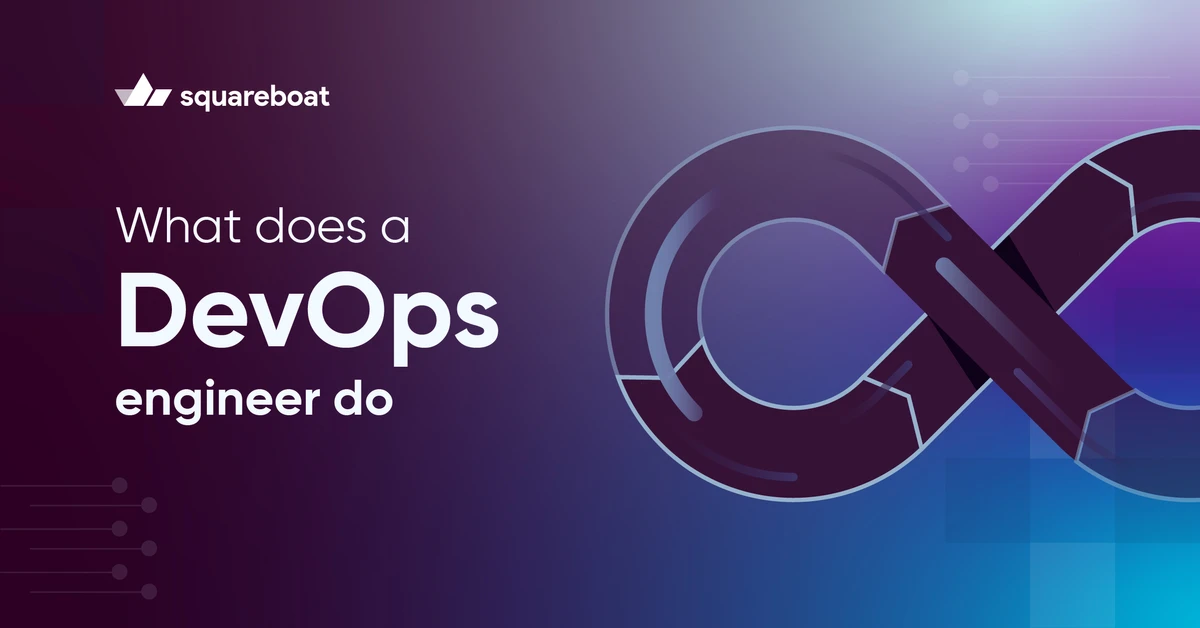The software world moves —teams push code many times daily, cloud environments grow in real time, and systems can't go down. At the center of this change is a crucial job: the DevOps engineer. When we ask “what does a DevOps engineer do?”, we're talking about the people who make continuous delivery possible, handle containerized workloads, set up infrastructure with tools like Terraform, and protect pipelines from start to finish. As DevOps grows alongside microservices, serverless, and edge computing, this job has become more important than ever. To understand it is key in today's cloud-based automated development scene.
What is a DevOps Engineer?
A DevOps engineer combines software development and IT operations to speed up software delivery. This tech expert builds systems for continuous integration and delivery, handles cloud infrastructure, and brings together tools to watch, track changes, and manage containers. DevOps engineers play a key role in modern software delivery as more companies use microservices, Kubernetes, and code-based infrastructure. They break down walls between teams, help deploy code faster, and keep systems running with reliability. In a world where everything is moving towards non-stop deployment, integration, and monitoring, the DevOps engineer forms the core of scalable, quick, and secure digital change across all industries.
What does a DevOps Engineer do?
As businesses adopt quicker release cycles and continuous delivery, DevOps engineers stand at the forefront. They integrate DevOps tools into workflows to enable rapid deployments, zero-downtime rollouts, and high system resilience. With the shift towards platform engineering, GitOps, and hybrid cloud infrastructure, the responsibilities of a DevOps engineer are evolving quickly.
Let’s break down what they actually do:
DevOps Engineer Roles and Responsibilities:
1. Build and Manage CI/CD Pipelines
They set up robust Continuous Integration and Continuous Deployment pipelines using tools like Jenkins, GitLab CI, CircleCI, or GitHub Actions. These pipelines handle automated testing, build packaging, and production deployments.
2. Infrastructure as Code (IaC)
They define infrastructure using code with Terraform, AWS CloudFormation, or Pulumi to make deployments reproducible and version-controlled. IaC is key to scaling reliably in dynamic environments.
3. Cloud Architecture & Deployment
They manage scalable, fault-tolerant systems on AWS, Azure, or Google Cloud Platform to handle compute instances, auto-scaling, IAM policies, and virtual networks.
4. Containerization & Orchestration
They containerize applications with Docker and deploy them using Kubernetes or OpenShift to ensure that applications run the same across development, testing, and production.
5. Monitoring, Logging & Alerting
They implement end-to-end observability using Prometheus, Grafana, Datadog, ELK Stack, and New Relic to track performance, detect anomalies, and ensure uptime.
6. Security & Compliance (DevSecOps)
They embed security in CI/CD workflows to handle secrets management, scanning containers for vulnerabilities, and enforcing compliance policies with tools like Aqua, Snyk, or HashiCorp Vault.
7. Source Control & Branching Strategy
They set up Git workflows, ways to branch code, and how to tag versions. This keeps code clean and stops conflicts. They also fix merge issues, make sure code gets reviewed, and protect important branches.
8. Automation of Operational Tasks
They use many DevOps tools throughout the tech stack—from Git to control source code to Helm for Kubernetes deployments, which automates routine jobs and cuts down on human mistakes.
9. Collaboration & Incident Management
They put strategies into action like blue-green deployments, canary releases, and chaos engineering to boost system resilience and cut downtime.
To sum up, a DevOps engineer designs and protects the software delivery pipeline. Their work makes sure code moves securely and non-stop from a developer's computer to production servers that help millions of users.
Essential Skills for a DevOps Engineer
DevOps is the backbone of modern software delivery. It’s not a tool or a role, it’s a mindset backed by automation, collaboration, and continuous improvement.
Here’s what every serious DevOps engineer must know:
1. Linux and System Administration
DevOps lives on Linux. A deep understanding of process management, networking, permissions, and shell scripting is fundamental. Everything from servers to containers starts here.
2. Programming and Scripting
Automation runs the show. Python, Bash, and Go are the go-to languages. Write scripts to automate repetitive tasks, integrate tools, and build internal tooling.
3. Infrastructure as Code (IaC)
Manual provisioning is obsolete. Use Terraform, CloudFormation, or Pulumi to define and version infrastructure. Treat infra like code—track changes, review pull requests, and deploy consistently.
4. CI/CD Pipeline Design
Every DevOps workflow hinges on reliable CI/CD. Engineers must know how to build and manage pipelines using Jenkins, GitHub Actions, GitLab CI, or CircleCI. Speed and stability are the goal.
5. Cloud Architecture
AWS, Azure, or GCP—pick a cloud and learn it well. Know how to architect systems that scale, secure workloads, and minimize cost. Familiarity with services like EC2, S3, IAM, VPC, and Lambda is expected.
6. Containerization and Orchestration
Docker is the baseline. Kubernetes is critical. DevOps engineers must know how to package applications, manage clusters, write Helm charts, and deploy workloads at scale.
7. Monitoring, Logging, and Observability
Uptime is everything. Use Prometheus, Grafana, ELK, or Datadog to track metrics, monitor services, and troubleshoot issues in real time. Alerting and SLOs are key to keeping systems healthy.
8. Version Control with Git
Not just cloning repos. Branching strategy, merge conflicts, GitOps workflows—Git is central to everything from code to infrastructure deployments.
9. Security and Compliance
Security is no longer someone else’s job. DevSecOps demands that engineers bake security into pipelines. Know how to handle secrets, scan for vulnerabilities, and set up access control policies.
10. Networking and Load Balancing
DevOps engineers must know how traffic flows through systems. Understand DNS, HTTP, SSL, firewalls, NAT, and load balancers. These are the building blocks of scalable, resilient systems.
How to Become a DevOps Engineer?
If you're aiming to break into this space, here’s your no-fluff, high-impact roadmap:
- Master Linux and Networking: Start with the backbone. Learn Linux deeply. Get hands-on with shell scripting. Understand ports, DNS, firewalls, proxies, load balancers, and how the internet really works.
- Learn Programming (Python or Bash): You’ll automate everything. Scripting for deployment, monitoring, backups, and config changes, Python and Bash are your best friends here.
- Get Comfortable with Git and Version Control: Master Git CLI. Work with branches, pull requests, and merge conflicts. You’ll use it daily in CI/CD pipelines and infra management.
- Dive Into CI/CD Pipelines: Build delivery pipelines using Jenkins, GitLab CI, or GitHub Actions. Learn concepts like artifact management, build runners, rollback plans, and blue-green deployments.
- Understand Containers and Orchestration: Docker is non-negotiable. Learn to containerize apps. Then, jump into Kubernetes services, pods, volumes, Helm, autoscaling, and rolling updates.
- Explore Infrastructure as Code (IaC): Use Terraform, Pulumi, or CloudFormation to define and deploy infrastructure. Learn to write reusable, modular, environment-specific IaC.
- Get Hands-On with Cloud Platforms: Start with AWS. Master EC2, VPC, S3, IAM, RDS, CloudWatch, ECS, or EKS. Learn real-world cloud architecture and provisioning.
- Implement Monitoring and Logging: Use Prometheus, Grafana, ELK Stack, Datadog, or New Relic. Set up metrics, alerts, uptime dashboards, and traces.
- Embrace DevSecOps: Security is shifting left. Learn secrets management (Vault, AWS Secrets Manager), scanning tools (Aqua, Trivy), and identity management.
Build Real Projects: Set up a GitOps-driven CI/CD pipeline. Deploy a microservices app to Kubernetes with monitoring and auto-scaling. Host it on GitHub with documentation.
Conclusion
A DevOps engineer combines technical skills to automate, monitor, and scale infrastructure, enabling faster and more reliable software delivery. We looked at their main duties, required skills, and how to begin in this field. As cloud-native apps, CI/CD pipelines, and container orchestration become common, this role grows in importance. DevOps isn't just a job title—it shapes modern engineering thinking. For anyone building or growing tech, DevOps forms an essential foundation.


